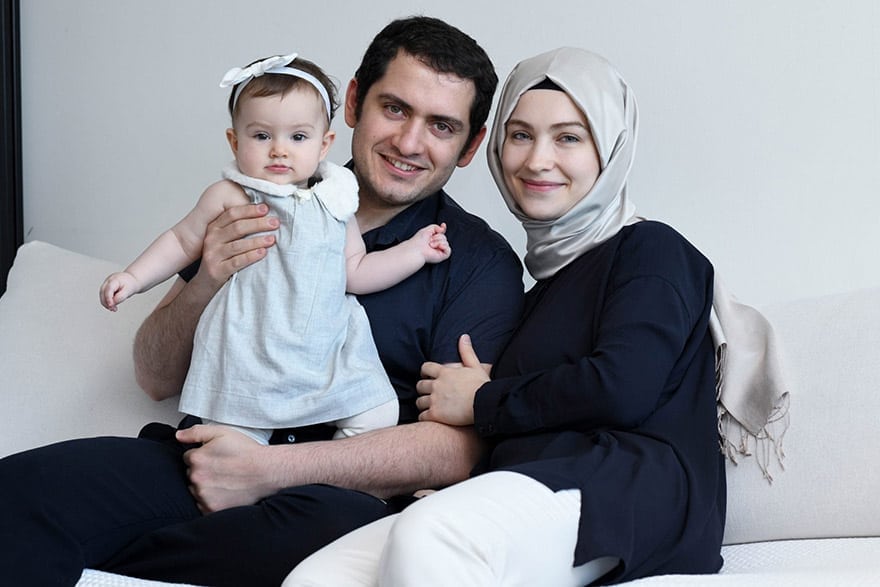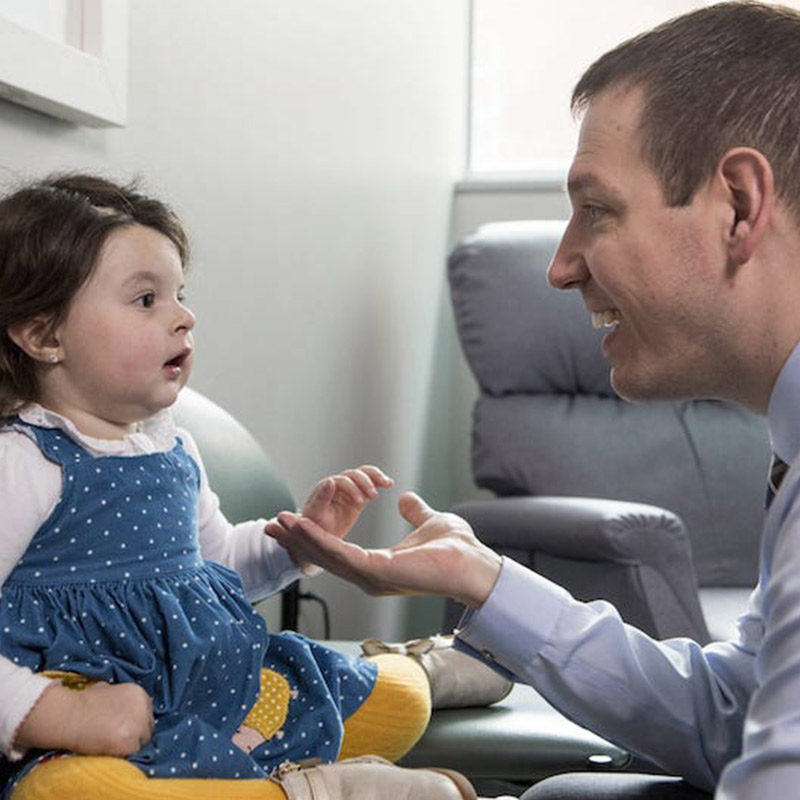Beating Botulism

August 16, 2018
Quick treatment restores the health of Jersey City infant.
After being diagnosed with the flu by her pediatrician, 6½-month-old Ala was progressively falling more ill. Ala’s stalled bowel movements, dehydration, poor eating, sporadic vomiting and lack of energy spurred her parents, Hatice Kubra Ucar and Murat Mutlu, to rush her to the Pediatric Emergency Department at Joseph M. Sanzari Children’s Hospital at Hackensack University Medical Center.
Stephen Percy, M.D. interim chair of The Children’s Hospital, saw that Ala was failing to breathe comfortably, open her eyes or keep her head up without leaning to the side. He transferred her to the Pediatric Intensive Care Unit (PICU) for closer monitoring.
“It was as if Ala was losing control of her muscles,” says Murat. “First she couldn’t swallow, then she couldn’t move her arms and then she lost movement in her legs. It was frightening.”
After ordering multiple tests and assessing the baby’s symptoms over the two days that followed, Dr. Percy diagnosed Ala with infant botulism.
A Rare illness
Botulism affects about 100 infants a year in the U.S. and is developed when Clostridium botulinum spores, which are found in soil or honey products, are ingested and produce toxins within the body.
Botulism blocks the nerve impulses to the muscles. “Essentially, it is like a telephone system: If a wire goes down, a person’s phone will work, but calls just won’t come through,” Dr. Percy says. “In Ala’s case, her brain was sending signals, but her muscles weren’t responding.” According to Dr. Percy, if treatment is delayed, it can possibly lead to paralysis and the need to be placed on a ventilator.
Seamless Care
In the PICU, Rachel Lewis, M.D., a board certified pediatrician specializing in critical care, proceeded with Ala’s treatment. “I requested antitoxin be immediately delivered to the hospital in order to begin treatment as soon as possible,” explains Dr. Lewis.
Within 24 hours, the drug was received and administered intravenously. Over the next few days, the care team noticed significant improvements in Ala’s ability to use her muscles.
“The expert team approach at Hackensack Meridian Health allowed me to work with skilled neurologists, pediatricians, critical care specialists and infectious disease specialists to develop a comprehensive care plan, obtain out-of-state medication and help Ala fully recover,” says Dr. Lewis. “There truly weren’t any roadblocks.”
After spending 15 days at the hospital and undergoing 10 days of inpatient physical therapy at a facility in New Brunswick, Ala was finally able to return home.
“We felt extremely comfortable at the hospital,” says Hatice. “We were able to be there for Ala throughout her entire stay.”
“The staff really paid attention to our daughter,” reflects Murat. “There were a lot of resources available, which allowed Ala to regain her health and recover.”
From the NICU to Thriving at Home

In the spring of 2019, Sarah Garland and Keith Wallenstein were eagerly awaiting the birth of their first child. With three months to go before the August due date, they were still debating names.

Tiny Fighter
Vanessa and Brian adore their 3-year-old daughter, Adeline, and take much pride and pleasure in watching her learn to speak.

In Good Hands
It’s scary any time you or a loved one is rushed to the emergency room, but a comforting member of the hospital team can make all the difference.

Leaving with a Smile
Physician’s soothing manner and silly dance moves ease the stress of an Emergency Department visit. When Moses Olorunnisola, M.D., a pediatric emergency medicine physician at Southern Ocean Medical Center...